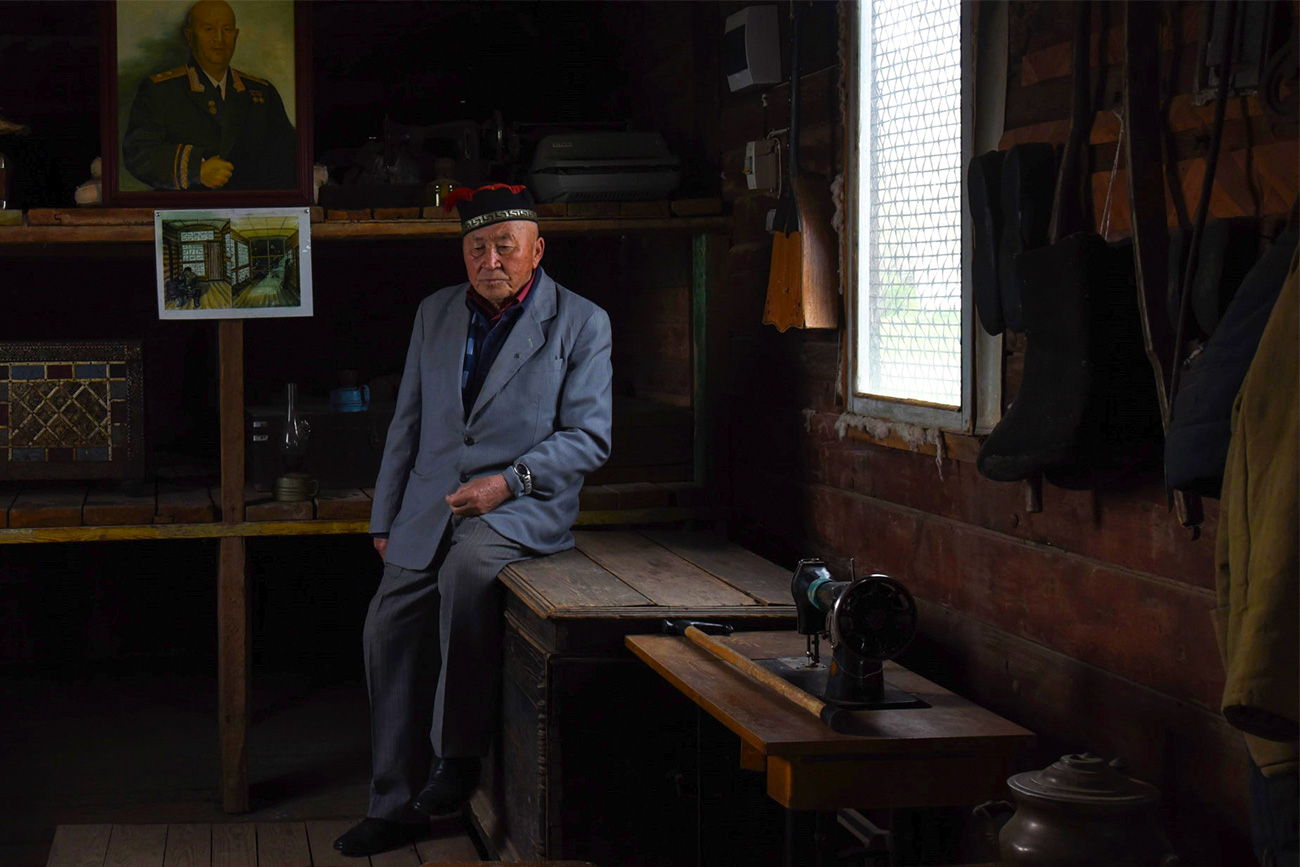
In December 1943 the Kalmyks, an ethnic group living in the Soviet Union, faced a tragic fate. They were forcibly deported as a form of collective punishment for allegedly collaborating with the Nazi occupation regime and fighting against the Soviet Red Army.
Only two days after the order issued by Joseph Stalin, about 100,000 people lost their homes. Women, children and the elderly were packed into standard cargo wagons for transportation to Siberia. Many died from hunger, hypothermia and epidemics before reaching their destination. In total, more than 40,000 Kalmyks died as a result of the deportation. Years later, this ethnic people was rehabilitated and returned to their native land.
 Elena Khovanskaya
Elena Khovanskaya
He heads the Union of Repressed Kalmyk People. In Elista Boris founded a museum of cargo wagons. “I was only four years old, but I remember how crowded it was here, and how over time more space became available as people died from exhaustion and cold. The dead were loaded into special ‘zero’ wagons,” he says.
“When the Kalmyks were rehabilitated, a Kalmyk song played on central radio. The Kalmyks listened and cried. As long as the Kalmyk language is alive, so are the Kalmyks.”
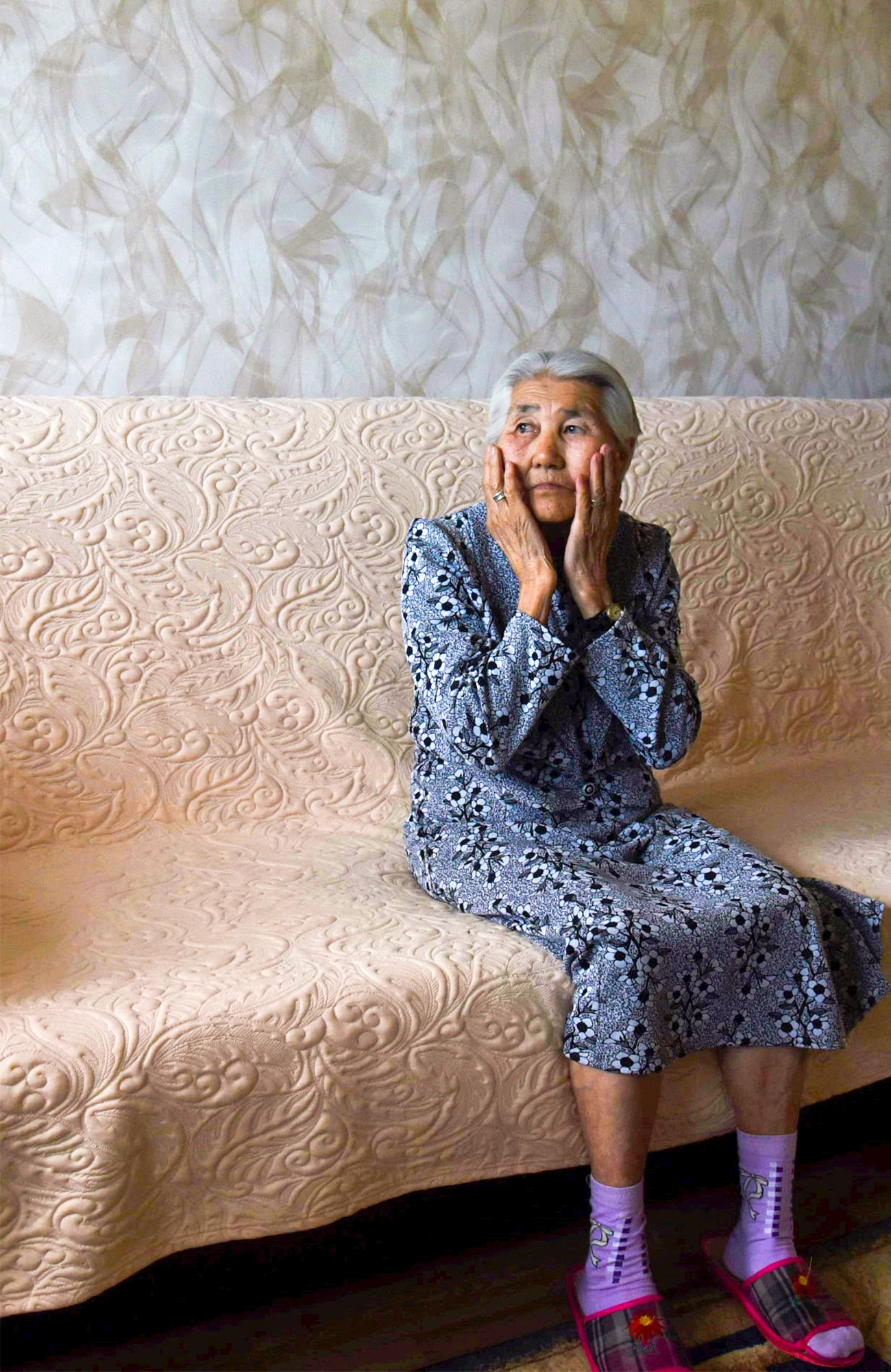 Elena Khovanskaya
Elena Khovanskaya
The purges happened when Nina was in early childhood, and her tragedy is that she doesn’t remember the history of her family. She doesn’t know her real surname, date and place of birth. The adults died en route, in the freezing-cold wagons, but the little girl survived. In Tyumen Oblast (in Siberia) Nina began working at age 13 on a collective farm. Her uncle fought in the Battle of Stalingrad and by chance saw a picture of Nina in 1958. She returned to Kalmykia after the rehabilitation, and was reunited with relatives. She has never gone back to Siberia since then.
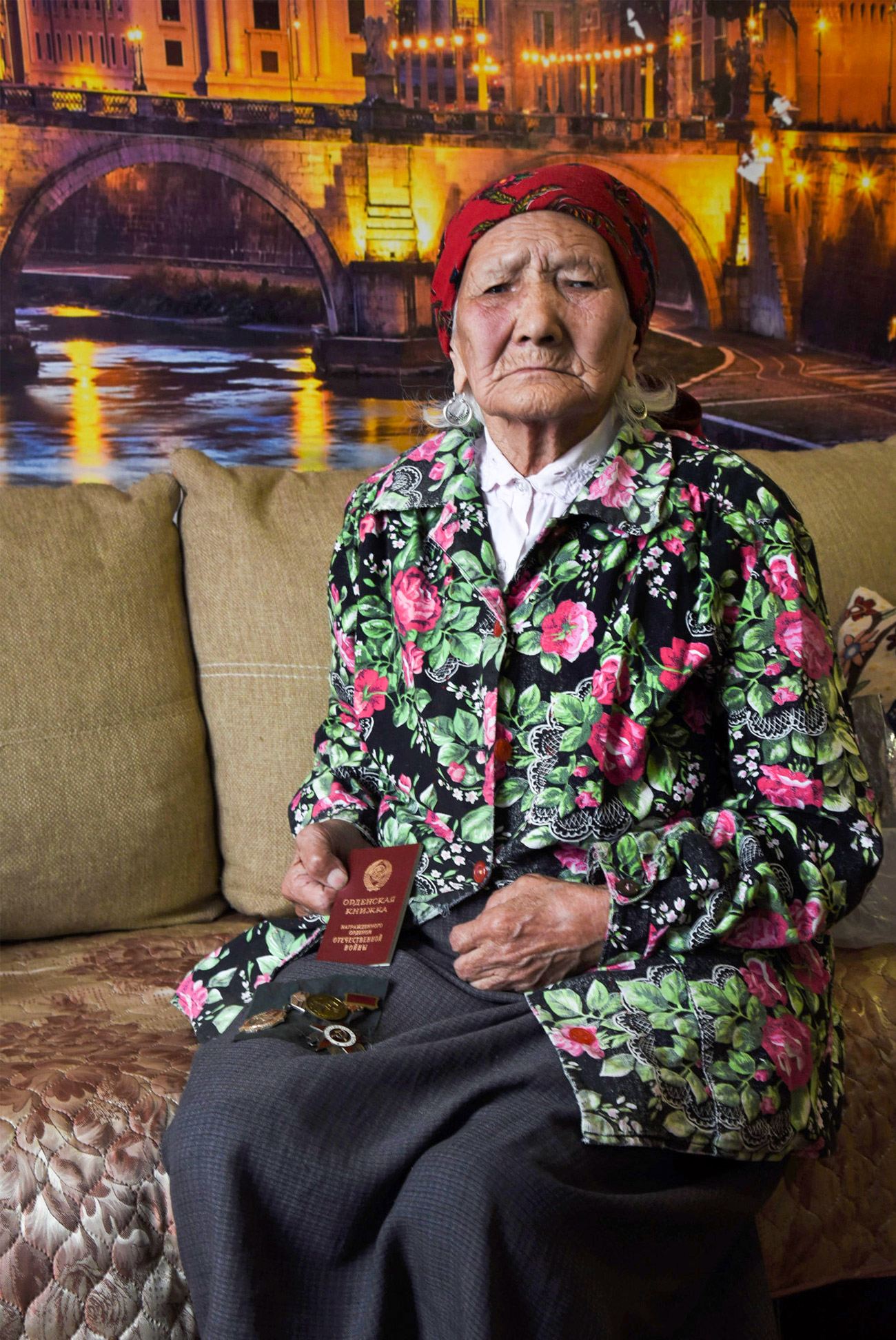 Elena Khovanskaya
Elena Khovanskaya
People did not understand what was happening. The wagons did not open for four days. The conditions were so terrible that half of those deported died on the road. People drank water from pails, using their hands. When they arrived at the barracks, they didn’t have even shoes. The Siberians are kind, good people. “We were given wooden four-finger-thick pads, with a nailed cloth and portyanki – pieces of cloth for wrapping your feet. It was a hard life. We ate anything we could, even dogs,” says Alyona. They were lumberjacks.
“We worked a lot. I still can’t stay long in one place, or have my own garden. But I’m happy! Only my husband is not alive. He was a hero, raised children, grandsons and great-grandsons,” she adds.
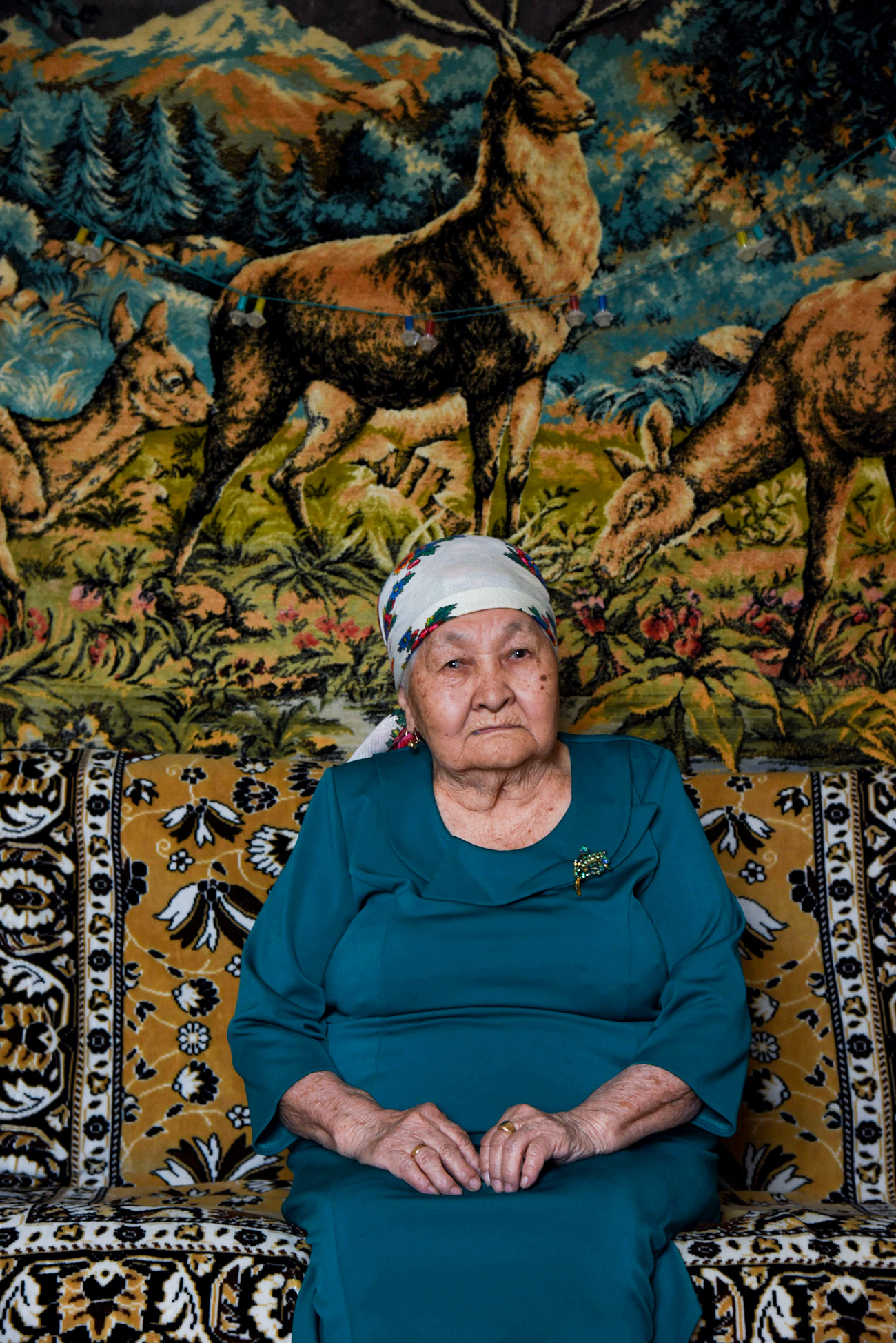 Elena Khovanskaya
Elena Khovanskaya
“We lived well, ‘in prosperity’ as people said back then, worked a lot. I knew the war was going on. One day some young soldiers came here. No one understood their language. They were Germans who needed food and a place to sleep. I cooked. They were not scary, just people, soldiers, and laughed a lot. In the morning, when they left, they gave me some chocolate. I wanted to try it, but they were against us in that war… I gave all the chocolate to the pigs…
In December 1943, two Russians soldiers came. I cooked for them. They told us to pack all the most valuable things because we had to go very far. But didn’t say where. They also said ‘don’t take the dolls,’ but helped us with bags full of woolen shawls.”
“I always live in peace with people and I'm not afraid of anything in my life,” says Nina. She has 7 children, 11 grandsons and 11 great-grandsons.
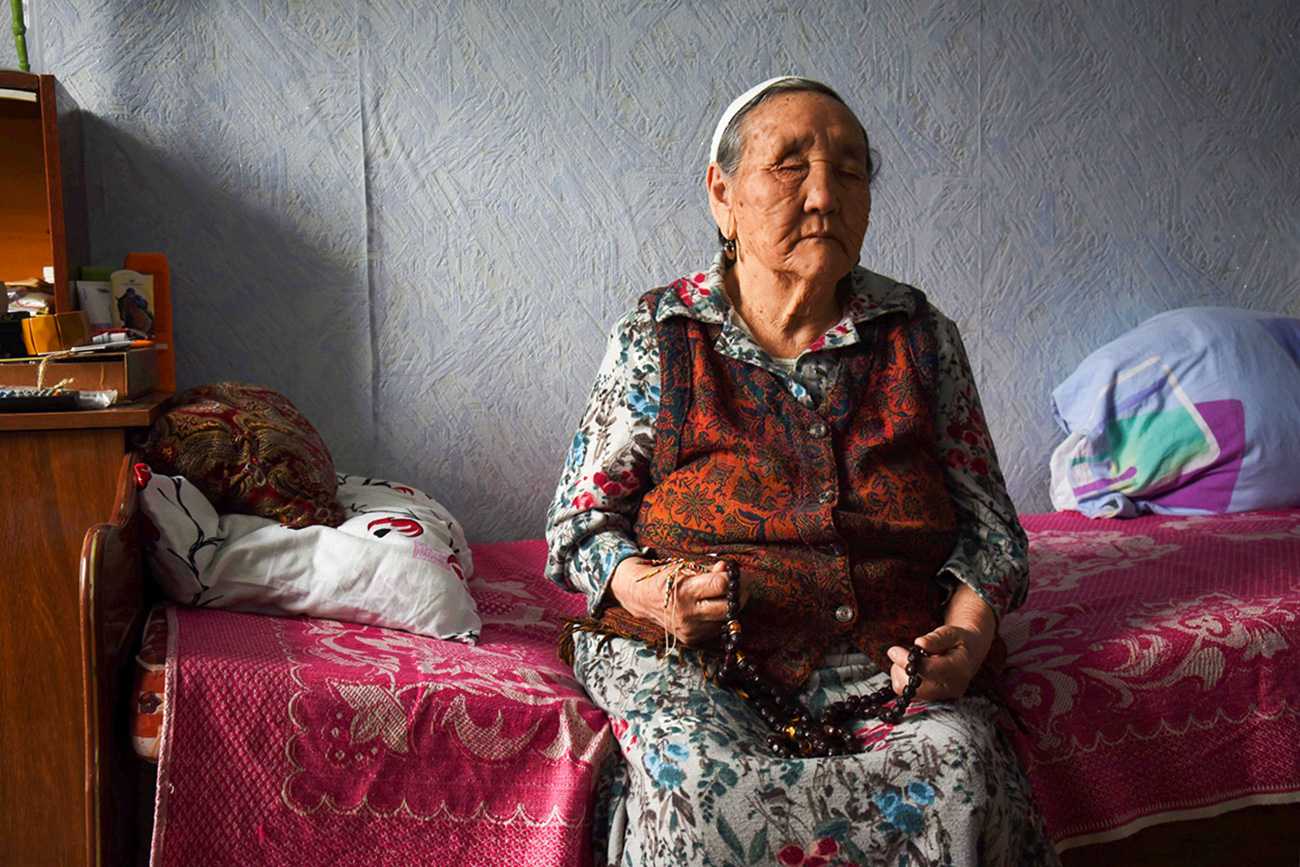 Elena Khovanskaya
Elena Khovanskaya
She survived thanks to her father, although he had only one leg. But he used to repair shoes and had success. In Siberia they ate frozen potatoes; the spikelets were like gum, and they ate it the whole day long. Since the age of 15, Alexandra worked on equal terms with adult women. She has been blind for the last fifteen years. Every night she prays for all who need help.
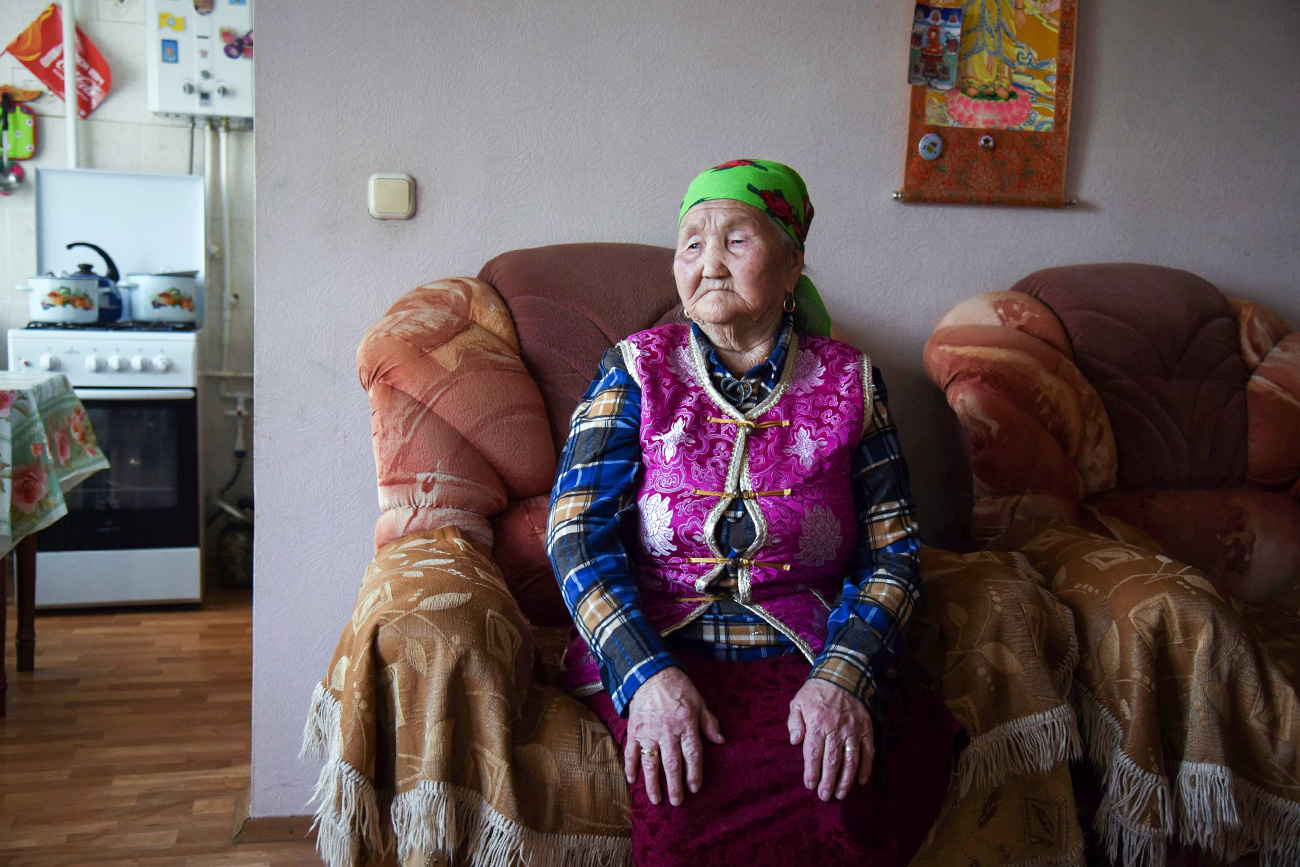 Elena Khovanskaya
Elena Khovanskaya
In the morning two soldiers came with guns. Bulgun’s dad was sick and lying in bed. “Quickly kill a ram or cow,” the soldiers advised. There was a 13-day journey ahead. In the Altai Territory, they were road workers in Semipalatinsk, where one of the Soviet Union's largest nuclear weapons test sites was situated. She suffered from radiation. When Bulgun’s dad died, he was wrapped in a blanket and placed in the snow. He was buried only in May, when the snow melted.
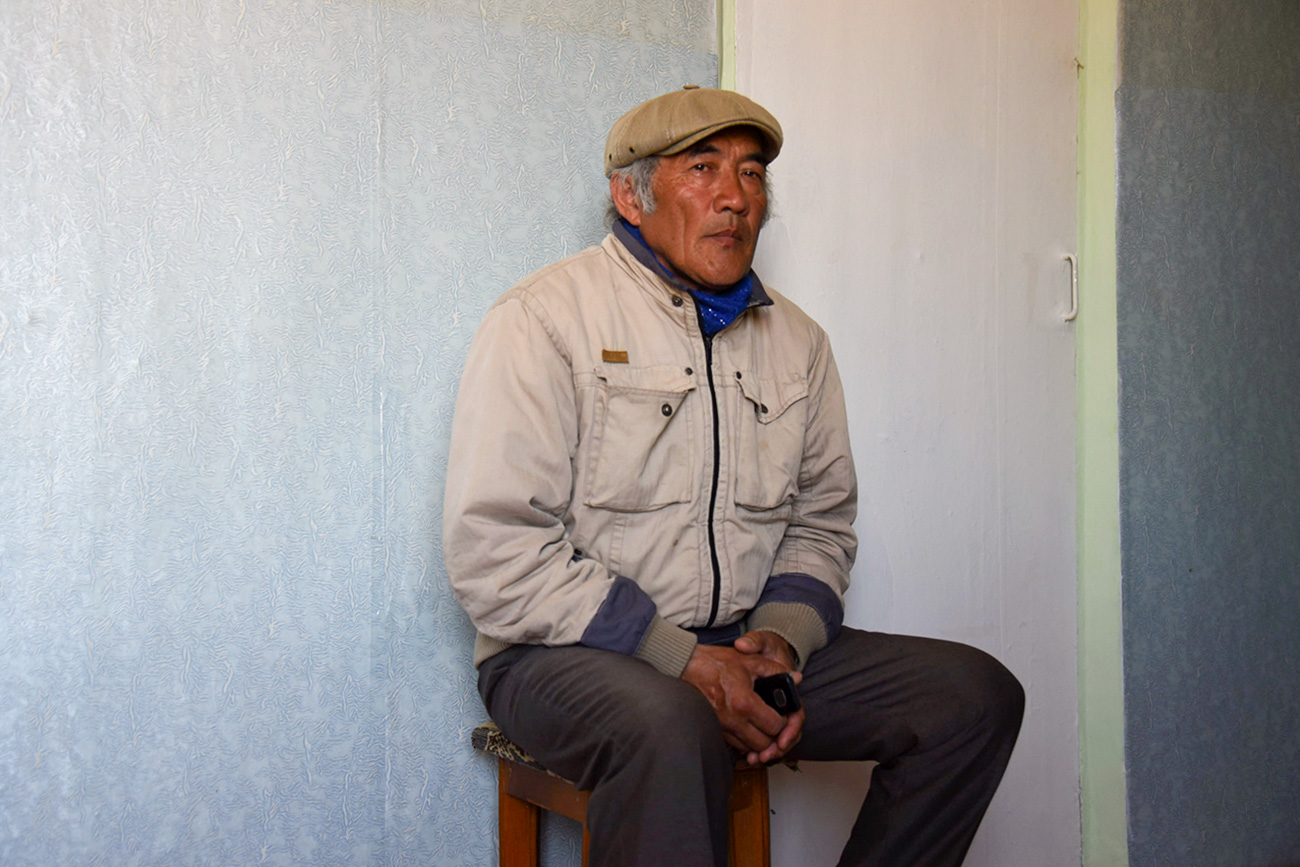 Elena Khovanskaya
Elena Khovanskaya
He was born in Siberia and partially remembers his childhood. “I remember how adults were carrying a rutabaga and I asked ‘Give it to me!’. Do you know what a rutabaga is? I even didn’t know what an ice cream was… really wanted to try it... And one of them dropped a rutabaga into the mud. Back then you could get 10 years in a camp for doing that. My family returned to Kalmykia in 1957.”
If using any of Russia Beyond's content, partly or in full, always provide an active hyperlink to the original material.
Subscribe
to our newsletter!
Get the week's best stories straight to your inbox